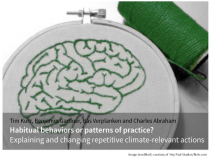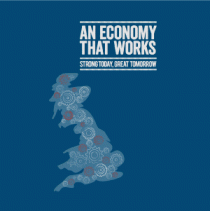- About
- Team
- Projects
- Children and the Environment
- ELiCiT (Exploring lifestyle changes in transition)
- Foundations for Sustainable Living
- HABITs
- Mapping Rebound Effects
- PASSAGE (Prosperity and Sustainability in the Green Economy)
- Policy Dialogue
- Price Responsiveness of Demand in Energy
- Resilience and Sustainable Lifestyles
- Sustainability Transitions in Food Systems
- Sustainable Living in Remote Rural Scotland
- Publications
- News
- Events
Forecasting UK household expenditure and associated GHG emissions: outlook to 2030
| Title | Forecasting UK household expenditure and associated GHG emissions: outlook to 2030 |
| Publication Type | RESOLVE Working Paper |
| 2012 | |
| Authors | Chitnis, M, Druckman, A, Hunt, LC, Jackson, T, Milne, S |
| 02-12 | |
This paper describes scenarios to 2030 for UK house hold expenditure and associated (direct and indirect) GHG emissions for 16 expenditure categories. Using assumptions for real household disposable income, prices, exogenous non-economic factors (ExNEF), average UK temperatures and GHG intensities for each of the 16 expenditure categories, three future scenarios are constructed. In each case, real expenditure for almost all categories of UK expenditure continues to grow up to 2030; the exceptions being ‘alcoholic beverages and tobacco’ and ‘other fuels’ (and ‘gas’ and ‘electricity’ in ‘low’ scenario). Furthermore, this leads to an increase in GHG emissions for most of the categories in the ‘reference’ and ‘high’ scenarios other than ‘food and non-alcoholic beverages’, ‘alcoholic beverages and tobacco’, ‘electricity’, ‘other fuels’ and ‘recreation and culture’. The GHGs emitted from ‘direct energy’ use by households are responsible for about 30 % of future total emissions with nearly 70% of future emissions attributable to ‘indirect energy’. UK policy makers therefore need to consider a range of policies if they wish to curtail expenditure and the associated emissions, including economic incentives such as taxes alongside measures that reflect the important contribution of ExNEF to changes in expenditure for most categories of consumption. |













